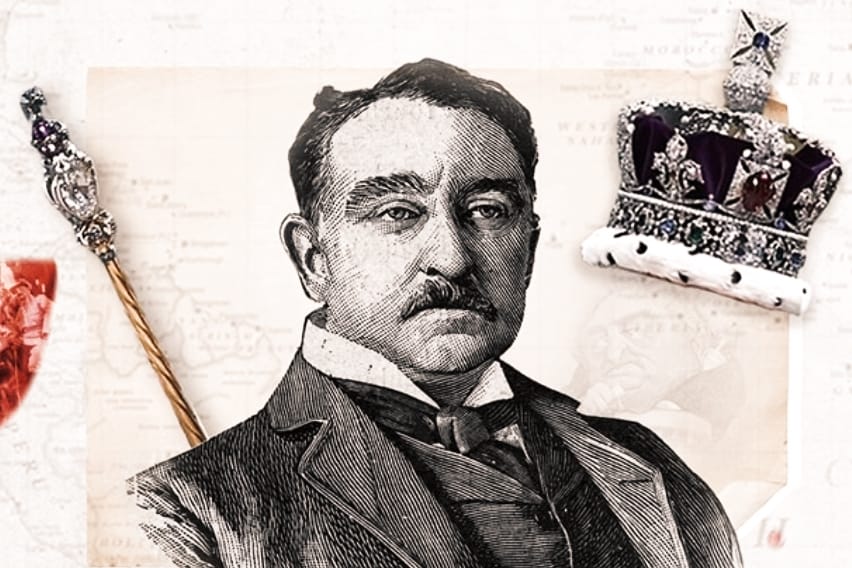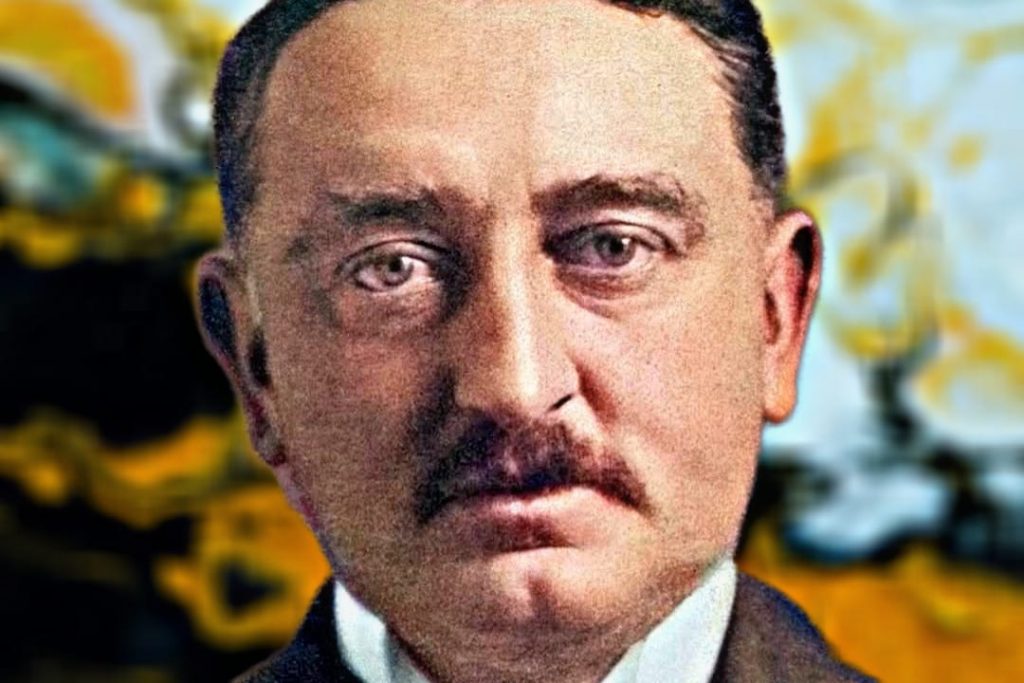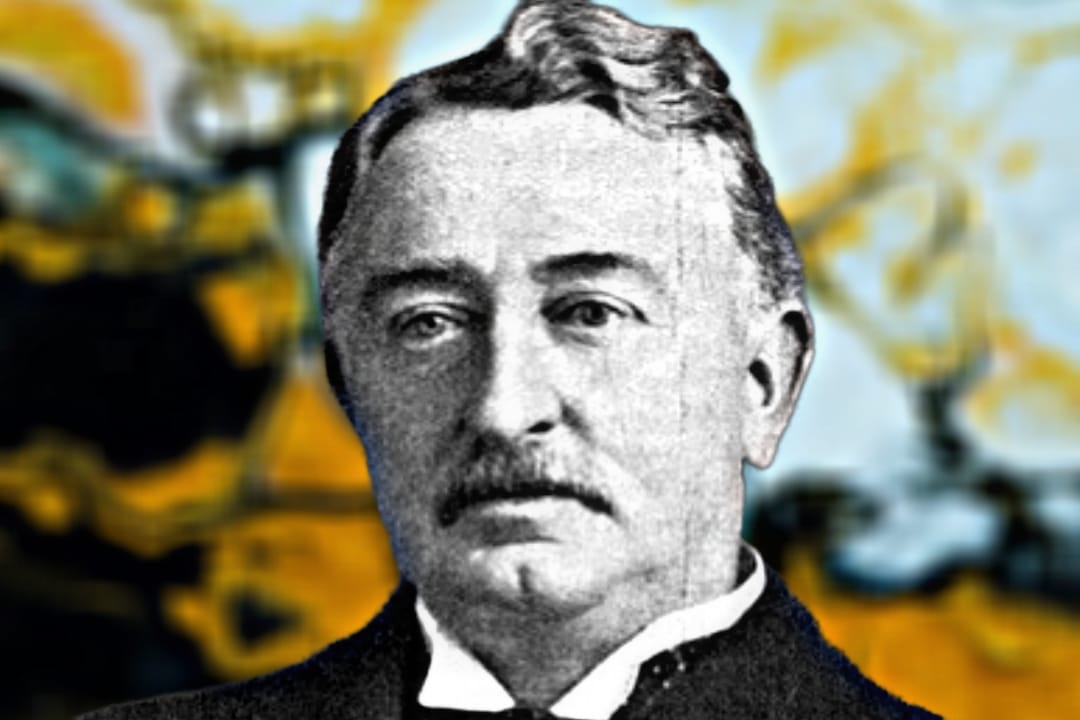Cecil Rhodes (1853–1902) was one of the most influential figures in the British Empire during the late 19th century, and his actions and policies continue to be subjects of intense debate to this day. As a businessman, colonial administrator, and philanthropist, Rhodes played a pivotal role in shaping the history of Southern Africa, and his legacy remains controversial. While he is hailed for his contributions to the expansion of the British Empire and the development of modern-day Zimbabwe (formerly Rhodesia), his life and career also reveal a darker side, marked by racism, exploitation, and imperialist ambition. This article delves into the life, legacy, and ongoing debates surrounding Cecil Rhodes, examining both the positive and negative aspects of his legacy.
Early Life and Education
Cecil Rhodes was born on July 5, 1853, in Bishop’s Stortford, Hertfordshire, England, into a middle-class family. His father, a wealthy merchant, had hopes of Rhodes pursuing a career in agriculture, but Cecil’s health was poor during his early years. A weak and sickly child, he was frequently confined to his bed. It was only after a recommendation from his doctor that Cecil Rhodes was sent to South Africa to recover from a lung condition. At the age of 17, he arrived in the Cape Colony (now part of South Africa) in 1870, with his family expecting him to join the burgeoning diamond industry, which was already a major economic force in the region.
The Rise of a Business Empire

Cecil Rhodes journey to wealth began when he joined the diamond mining industry in 1871, just after the discovery of vast diamond deposits at Kimberley. With his entrepreneurial spirit, Cecil Rhodes quickly recognized the potential for profit and sought to monopolize the industry. In 1888, he founded De Beers Consolidated Mines, which would eventually control a dominant share of the world’s diamond supply.
Cecil Rhodes business practices were aggressive and often ruthless. He utilized his political connections to obtain favorable mining rights and, through a series of mergers and acquisitions, brought most of the diamond industry in South Africa under his control. By the late 19th century, De Beers was the largest and most profitable diamond company in the world. Cecil Rhodes business acumen transformed him into one of the wealthiest men of his time, and he was able to use his wealth to exert significant influence in both South Africa and Britain.
Cecil Rhodes Vision of Empire

Cecil Rhodes was a staunch believer in British imperialism, and he saw the expansion of the British Empire in Africa as both a moral imperative and a business opportunity. He was particularly inspired by the idea of Anglo-Saxon supremacy and believed that the British were destined to dominate the world. His vision for Africa was rooted in the notion that European civilization and Christianity would bring progress and prosperity to the “uncivilized” peoples of the continent.
One of Cecil Rhodes’ most ambitious projects was the establishment of a “Cape to Cairo” railway, which would connect British colonies in southern Africa with those in the north. The railway would facilitate the transport of goods, including the precious minerals Rhodes had helped discover, while consolidating British control over the entire continent. Cecil Rhodes believed that the success of this railway was crucial to the future of the British Empire in Africa, and he dedicated significant resources to the project.
In 1889, Cecil Rhodes became the Prime Minister of the Cape Colony, a position that allowed him to further his imperial ambitions. During his time in office, he worked to expand British control over neighboring territories, including modern-day Zambia and Zimbabwe. In 1890, he played a key role in the establishment of the British South Africa Company (BSAC), which was granted a royal charter to colonize large parts of southern Africa. This company would become the vehicle for Rhodes’ territorial expansion, leading to the colonization of what would later be known as Rhodesia (now Zimbabwe and Zambia).
The Colonization of Rhodesia
The colonization of Rhodesia was marked by violence, coercion, and the displacement of indigenous African peoples. Cecil Rhodes was instrumental in the creation of the British South Africa Company, which was tasked with administering the colony. The BSAC’s charter gave Rhodes and his company the authority to raise armies, establish settlements, and extract resources from the land. In practice, this meant that the company could control the lives of the indigenous populations, who were forced into labor to work the mines and farms that were established by the colonialists.
One of the most controversial aspects of Cecil Rhodes’ legacy in Rhodesia was his role in the forced displacement of indigenous Africans. The BSAC established a system of land dispossession and labor exploitation, which saw the indigenous population pushed off their land and subjected to harsh working conditions. Rhodes himself advocated for the systematic subjugation of Africans, arguing that they were incapable of governing themselves and that British rule would bring civilization and prosperity to the region.
Despite his extensive efforts to expand British rule, Cecil Rhodes’ actions in Africa were not without opposition. Local resistance to British rule was strong, and numerous uprisings and rebellions occurred throughout the region. One of the most significant was the 1896–1897 Mashona and Matabele uprisings, in which indigenous Africans fought against British colonial rule. The uprisings were brutally suppressed by the British South Africa Company, with thousands of Africans killed in the process.
The Controversial Legacy of Cecil Rhodes

Cecil Rhodes legacy is a deeply controversial one, marked by both his contributions to the development of Southern Africa and his role in the exploitation and oppression of African peoples. On the one hand, Cecil Rhodes is credited with laying the foundations for the modern economies of Zimbabwe and Zambia. His establishment of infrastructure, including railways, mines, and towns, contributed to the development of the region. His financial contributions to education, including the creation of the Rhodes Scholarship, also left a lasting impact.
The Cecil Rhodes Scholarship, established in 1902, was designed to bring students from around the world to Oxford University, with the aim of fostering international goodwill and promoting British imperial values. Today, the Rhodes Scholarship remains one of the most prestigious academic awards in the world, with notable recipients including former U.S. President Bill Clinton, former U.K. Prime Minister Boris Johnson, and former South African President Mandela. While the scholarship has had a lasting positive impact on many individuals, it is also viewed by some as a legacy of colonialism that continues to perpetuate Rhodes’ imperialist ideology.
On the other hand, Cecil Rhodes actions in Africa are often criticized for their brutality and racism. He was a vocal advocate for white supremacy and believed that Europeans had a civilizing mission in Africa. His policies were designed to consolidate British control over the continent at the expense of indigenous African peoples. The systematic exploitation of labor, the dispossession of land, and the violent repression of resistance movements are all aspects of Cecil Rhodes colonial legacy that are viewed with deep resentment by many African communities.
The Statue Controversy
In recent years, Cecil Rhodes has become a focal point of debates surrounding colonialism, racism, and historical memory. The most notable example of this controversy occurred in 2015, when students at the University of Cape Town in South Africa launched the #RhodesMustFall movement. The movement called for the removal of a statue of Cecil Rhodes that stood on the university’s campus, arguing that it symbolized the continued legacy of colonialism and racism in South Africa.
The statue’s removal was a significant moment in the ongoing struggle for racial justice and decolonization in Africa. The #RhodesMustFall movement sparked similar protests in other parts of the world, including the United Kingdom and the United States, where statues of colonial figures have also been the subject of public scrutiny. In the UK, debates about the legacy of Cecil Rhodes have intensified, particularly in light of the ongoing Black Lives Matter movement and calls for greater recognition of the impact of colonialism on contemporary society.
Conclusion: A Legacy of Contradictions
Cecil Rhodes’ life and legacy are marked by contradictions. On the one hand, he was a visionary who helped shape the modern economies of Southern Africa and made significant contributions to education through the Cecil Rhodes Scholarship. On the other hand, his actions were deeply rooted in colonial exploitation, racism, and the subjugation of indigenous peoples. Rhodes’ vision of an empire dominated by Anglo-Saxon supremacy was not only misguided but also profoundly harmful to the people he sought to control.
The ongoing debates surrounding Rhodes’ legacy are a reflection of broader questions about how societies should reckon with their colonial pasts. Should we honor individuals for their contributions to development and education, or should we condemn them for their role in the exploitation and oppression of marginalized groups? In the case of Cecil Rhodes, the answer is not simple, and his legacy remains a contested and controversial topic to this day.
Ultimately, the legacy of Cecil Rhodes serves as a reminder of the complex and often painful history of imperialism, and the need to confront the historical injustices that continue to shape the world today. Whether viewed as a hero of empire or a symbol of exploitation, Cecil Rhodes life offers valuable lessons about the dangers of unchecked power and the enduring consequences of colonialism.

